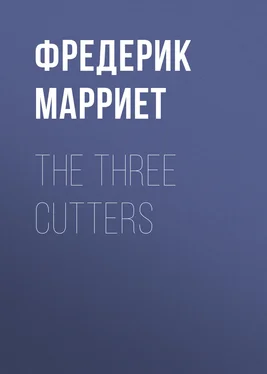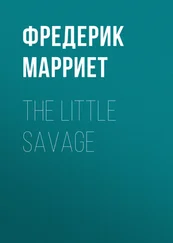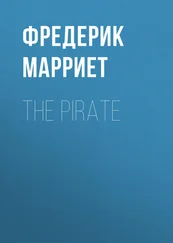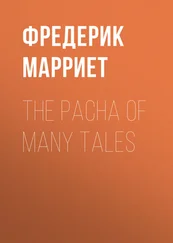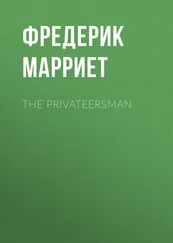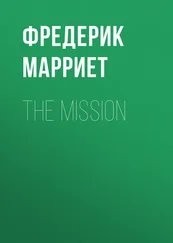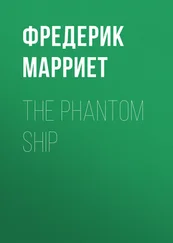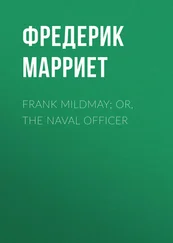Фредерик Марриет - The Three Cutters
Здесь есть возможность читать онлайн «Фредерик Марриет - The Three Cutters» — ознакомительный отрывок электронной книги совершенно бесплатно, а после прочтения отрывка купить полную версию. В некоторых случаях можно слушать аудио, скачать через торрент в формате fb2 и присутствует краткое содержание. Жанр: foreign_prose, literature_19, foreign_antique, на английском языке. Описание произведения, (предисловие) а так же отзывы посетителей доступны на портале библиотеки ЛибКат.
- Название:The Three Cutters
- Автор:
- Жанр:
- Год:неизвестен
- ISBN:нет данных
- Рейтинг книги:4 / 5. Голосов: 1
-
Избранное:Добавить в избранное
- Отзывы:
-
Ваша оценка:
- 80
- 1
- 2
- 3
- 4
- 5
The Three Cutters: краткое содержание, описание и аннотация
Предлагаем к чтению аннотацию, описание, краткое содержание или предисловие (зависит от того, что написал сам автор книги «The Three Cutters»). Если вы не нашли необходимую информацию о книге — напишите в комментариях, мы постараемся отыскать её.
The Three Cutters — читать онлайн ознакомительный отрывок
Ниже представлен текст книги, разбитый по страницам. Система сохранения места последней прочитанной страницы, позволяет с удобством читать онлайн бесплатно книгу «The Three Cutters», без необходимости каждый раз заново искать на чём Вы остановились. Поставьте закладку, и сможете в любой момент перейти на страницу, на которой закончили чтение.
Интервал:
Закладка:
“And Mr Ponsonby directed his steps towards the door.
“‘Stop, my dear uncle,’ cried William, rising up from his easy-chair; ‘we do not quite understand one another. It is very true that I would prefer half the property and remaining single, to the two estates and the estate of marriage; but at the same time I did not tell you that I would prefer beggary to a wife and five thousand acres in a ring-fence. I know you to be a man of your word. I accept your proposal, and you need not put my cousin James to the expense of postage.’
“‘Very good, William; I require no more: and as I know you to be a man of your word, I shall consider this match as settled. It was on this account only that I sent for you, and now you may go back again as soon as you please. I will let you know when all is ready.’
“‘I must be at Tattersall’s on Monday, uncle; there is a horse I must have for next season. Pray, uncle, may I ask when you are likely to want me?’
“‘Let me see—this is May—about July, I should think.’
“‘July, uncle! Spare me—I cannot marry in the dog-days. No, hang it! Not July.’
“‘Well, William, perhaps, as you must come down once or twice to see the property—Miss Percival, I should say—it may be too soon—suppose we put it off till October.’
“‘October—I shall be down at Melton.’
“‘Pray, sir, may I then inquire what portion of the year is not, with you, dog -days?’
“‘Why, uncle, next April, now—I think that would do.’
“‘Next April! Eleven months, and a winter between. Suppose Miss Percival was to take a cold and die.’
“‘I should be excessively obliged to her,’ thought William.
“‘No! No!’ continued Mr Ponsonby: ‘there is nothing certain in this world, William.’
“‘Well, then, uncle, suppose we arrange it for the first hard frost .’
“‘We have had no hard frosts, lately, William. We may wait for years. The sooner it is over the better. Go back to town, buy your horse, and then come down here, my dear William, to oblige your uncle—never mind the dog-days.’
“‘Well, sir, if I am to make a sacrifice, it shall not be done by halves; out of respect for you I will even marry in July, without any regard to the thermometer.’
“‘You are a good boy, William. Do you want a cheque?’
“‘I have had one to-day,’ thought William, and was almost at fault. ‘I shall be most thankful, sir—they sell horse-flesh by the ounce now-a-days.’
“‘And you pay in pounds. There, William.’
“‘Thank you, sir, I’m all obedience; and I’ll keep my word, even if there should be a comet. I’ll go and buy the horse, and then I shall be ready to take the ring-fence as soon as you please.’
“‘Yes, and you’ll get over it cleverly, I’ve no doubt. Five thousand acres, William, and—a pretty wife!’
“‘Have you any further commands, uncle?’ said William, depositing the cheque in his pocket-book.
“‘None, my dear boy: are you going?’
“‘Yes, sir; I dine at the Clarendon.’
“‘Well, then, good-bye. Make my compliments and excuses to your friend Seagrove. You will come on Tuesday or Wednesday.’
“Thus was concluded the marriage between William Ponsonby and Emily Percival, and the junction of the two estates, which formed together the great desideratum— five thousand acres in a ring-fence .”
Mr Seagrove finished, and he looked round for approbation.
“Very good, indeed, Seagrove,” said his lordship; “you must take a glass of wine after that.”
“I would not give much for Miss Percival’s chance of happiness,” observed the elder Miss Ossulton.
“Of two evils choose the least, they say,” observed Mr Hautaine. “Poor Ponsonby could not help himself.”
“That’s a very polite observation of yours, Mr Hautaine—I thank you in the name of the sex,” replied Cecilia Ossulton.
“Nay, Miss Ossulton; would you like to marry a person whom you never saw?”
“Most certainly not; but when you mentioned the two evils, Mr Hautaine, I appeal to your honour, did you not refer to marriage or beggary?”
“I must confess it, Miss Ossulton; but it is hardly fair to call on my honour to get me into a scrape.”
“I only wish that the offer had been made to me,” observed Vaughan; “I should not have hesitated as Ponsonby did.”
“Then I beg you will not think of proposing for me,” said Mrs Lascelles, laughing; for Mr Vaughan had been excessively attentive.
“It appears to me, Vaughan,” observed Seagrove, “that you have slightly committed yourself by that remark.”
Vaughan, who thought so too, replied: “Mrs Lascelles must be aware that I was only joking.”
“Fie! Mr Vaughan,” cried Cecilia Ossulton; “you know it came from your heart.”
“My dear Cecilia,” said the elder Miss Ossulton, “you forget yourself—what can you possibly know about gentlemen’s hearts?”
“The Bible says that they are ‘deceitful and desperately wicked,’ aunt.”
“And cannot we also quote the Bible against your sex, Miss Ossulton?” replied Seagrove.
“Yes, you could, perhaps, if any of you had ever read it,” replied Miss Ossulton, carelessly.
“Upon my word, Cissy, you are throwing the gauntlet down to the gentlemen,” observed Lord B—; “but I shall throw my warder down, and not permit this combat à l’outrance .—I perceive you drink no more wine, gentlemen, we will take our coffee on deck.”
“We were just about to retire, my lord,” observed the elder Miss Ossulton, with great asperity: “I have been trying to catch the eye of Mrs Lascelles for some time, but—”
“I was looking another way, I presume,” interrupted Mrs Lascelles, smiling.
“I am afraid that I am the unfortunate culprit,” said Mr Seagrove. “I was telling a little anecdote to Mrs Lascelles—”
“Which, of course, from its being communicated in an undertone, was not proper for all the company to hear,” replied the elder Miss Ossulton; “but if Mrs Lascelles is now ready,” continued she, bridling up, as she rose from her chair.
“At all events, I can hear the remainder of it on deck,” replied Mrs Lascelles. The ladies rose and went into the cabin, Cecilia and Mrs Lascelles exchanging very significant smiles as they followed the precise spinster, who did not choose that Mrs Lascelles should take the lead merely because she had once happened to have been married. The gentlemen also broke up, and went on deck.
“We have a nice breeze now, my lord,” observed Mr Stewart, who had remained on deck, “and we lie right up Channel.”
“So much the better,” replied his lordship; “we ought to have been anchored at Cowes a week ago. They will all be there before us.”
“Tell Mr Simpson to bring me a light for my cigar,” said Mr Ossulton to one of the men.
Mr Stewart went down to his dinner; the ladies and the coffee came on deck: the breeze was fine, the weather (it was April) almost warm; and the yacht, whose name was the Arrow , assisted by the tide, soon left the Mewstone far astern.
Chapter Two
Reader, have you ever been at Portsmouth? If you have, you must have been delighted with the view from the saluting battery; and if you have not you had better go there as soon as you can. From the saluting battery you may look up the harbour, and see much of what I have described at Plymouth; the scenery is different, but similar arsenals and dockyards, and an equal portion of our stupendous navy are to be found there; and you will see Gosport on the other side of the harbour, and Sallyport close to you; besides a great many other places, which, from the saluting battery, you cannot see. And then there is Southsea Beach to your left. Before you, Spithead, with the men-of-war, and the Motherbank crowded with merchant vessels; and there is the buoy where the Royal George was wrecked and where she still lies, the fish swimming in and out of her cabin windows but that is not all; you can also see the Isle of Wight,—Ryde with its long wooden pier, and Cowes, where the yachts lie. In fact there is a great deal to be seen at Portsmouth as well as at Plymouth; but what I wish you particularly to see just now is a vessel holding fast to the buoy just off the saluting battery. She is a cutter; and you may know that she belongs to the Preventive Service by the number of gigs and galleys which she has hoisted up all round her. She looks like a vessel that was about to sail with a cargo of boats; two on deck, one astern, one on each side of her. You observe that she is painted black, and all her boats are white. She is not such an elegant vessel as the yacht, and she is much more lumbered up. She has no haunches of venison hanging over the stern! But I think there is a leg of mutton and some cabbages hanging by their stalks. But revenue-cutters are not yachts. You will find no turtle or champagne; but, nevertheless, you will, perhaps, find a joint to carve at, a good glass of grog, and a hearty welcome.
Читать дальшеИнтервал:
Закладка:
Похожие книги на «The Three Cutters»
Представляем Вашему вниманию похожие книги на «The Three Cutters» списком для выбора. Мы отобрали схожую по названию и смыслу литературу в надежде предоставить читателям больше вариантов отыскать новые, интересные, ещё непрочитанные произведения.
Обсуждение, отзывы о книге «The Three Cutters» и просто собственные мнения читателей. Оставьте ваши комментарии, напишите, что Вы думаете о произведении, его смысле или главных героях. Укажите что конкретно понравилось, а что нет, и почему Вы так считаете.
